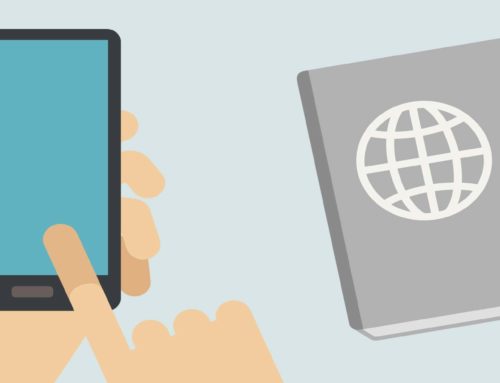
Why learn a new language? That’s a good question.
While the reasons for taking on this impressive pursuit vary, the rewards you’ll reap will always be worthwhile.
It’s ironic, though, how the motifs and benefits of learning a language lead to one another.
For instance, you may want to learn a new language for a job opportunity, but then learning a new language, in itself, paves new roads for your professional opportunities.
Funny, isn’t it?
Speaking a language other than your mother tongue opens a door onto the world. Becoming proficient in a foreign tongue equates to a wider range of options in love, career, and friendships.
But it’s hard to pick up a new language, or is it?
Well, I can tell you this:
Although the learning curve differs between individuals, everyone is capable of becoming fluent in a foreign language.
That includes you!
No matter your educational background or learning aptitude, you got what it takes to master a foreign language.
Never listen to those who say only select few can learn a language. Granted, it may take individuals who are naturally good with languages a shorter time to reach fluency. However, with dedication and persistence, you’re on your way to speak any language.
Whether you’re starting from scratch or brushing up on the language you’ve learned at school, here are the top 5 ways to learn any language.
1. Live Where They Speak It

Of all the methods, living in the country of your chosen language is the most efficient and quickest way to learn how to speak it.
Unless, one day, a gifted scientist invents an instant-learning chip or pill, residing where native speakers of your target lingo live will remain the best way to learn a foreign tongue
.Even if you don’t know a word in a language, the constant exposure and contact with native speakers allow you to make significant progress is a short amount of time.
Add a language course or a new friend who’s willing to help you out, and voila! You’d probably reach basic fluency in weeks rather than months.
What’s great about living in a country where people speak your target language? Here are my top 3 reasons:
- You’ll be able to practice the language on a daily basis
- You’ll know about the culture, customs, and traditions
- You’ll learn exactly how natives pronounce the words
Hands down, being in the country where almost everyone speaks your target language offers way more than any other learning approach.
However, you will need motivation and patience on your way to fluency. Case in point, many immigrants in the US speak poor English, even after years of being there.
Why? Well, as long as those newcomers can use basic words to communicate, there’s really no need for them to become fluent.
So, with that in mind, find a compelling reason to make your learning journey in a foreign country worthwhile.
There’s a catch, though.
You see, to learn through this method, you need to live in a foreign country for a few months, at least. For a number of reasons, that may prove difficult to accomplish.
From financial difficulties to visa issues, there might be obstacles that could hinder you from traveling to your target country.
But don’t let that stop you.
Living in another country isn’t the only way to go about learning a language.
Here’s the second best way:
2. Take a Language Course

So what if you can’t travel to the country where your target language is spoken?
Well, there’s a good alternative.
Attending a language course in a class setting or with a private tutor makes for a great way to learn a language, especially when your teacher is a native speaker.
This method is effective because it teaches you the language in a structured manner. Moreover, with tests and quizzes, you’re able to measure your progress and focus on your weaknesses.
Learning with other students in a class will also encourage and motivate you because you’re surrounded by fellow learners. Additionally, you have access to a teacher who’s able to answer your questions and correct your mistakes.
Look for a reputable language institute or cultural center for the best results. Usually, you’ll take an initial test to measure your level. Therefore, this approach works whether you’re a beginner taking your first linguistic steps or if you already speak the language and want to improve.
A good language course incorporates several activities, such as reading sessions, watching movies, and thematic discussions in order to enhance the learning process.
Additionally, there are websites that allow you to find language schools near you.
Sounds great, right? Well, a couple of things might make it difficult to attend a formal course or hire a tutor.
First, it’s usually costly to do so. Even if money is no issue, work, family, and other commitments could make it hard to dedicate time to learning a language using this way.
But don’t fret, there’s another decent option:
3. Language Learning Apps

Living on a tight budget or having a hectic schedule could get in the way of a language course or private tutoring.
So how about a way you can learn a language any time? While also paying little to no money for it.
What am I talking about here?
In one word: Apps.
Nowadays, there’s hardly anyone who hasn’t got a smartphone or an iPhone. Chances are that you have one!
So how about turning your phone into a learning tool?
In recent years, apps evolved to such an extent that you can accomplish nearly anything. From ordering your food to remotely starting your car’s engine, the range of what mobile applications can do only keeps on expanding.
Among many others, Duolingo, Busuu, and Memrise rank among the top language learning apps out there.
What’s so great about those apps?
First off, they provide a structure similar to what a language course would offer. Moreover, those apps allow you to start from scratch if you’re a beginner or skip to more advanced levels if you’re already familiar with the language.
However, learning with an app is beneficial mostly because of two reasons:
- With an app, you’re able to learn at your own pace. In essence, you learn when you want or feel like it.
- Learning with an app is effective, as you can practice reading, writing, listening, and with speech recognition technology, you can practice speaking as well.
The best thing about apps, though, is that they’re fun!
But for some reason or another, you might not like this method.
If that’s the case, here’s yet another way to learn a new language:
4. Language Partner

Okay, maybe traveling and taking a course are a bit too costly. You may also not like learning with an app.
Is there another way to learn a language? Yes.
A language or a tandem partner is a speaker of the language you want to learn, who’s also learning your mother tongue.
Ideally, this language partner is a native speaker of your target language, even better if they have teaching experience. However, a fluent speaker is almost as good.
Similar to hiring a private tutor, you learn through language exchange. Your language partner will help you learn your target language, and you will help them learn theirs.
The great thing about language exchange is that it’s one-on-one. Both you and your partner are focused, for a specific duration, on helping each other learn and improve in your respective languages.
Moreover, this method offers flexibility. You can also figure out a good time to meet with your language partner that works for both of you.
Finding a native speaker in your city might be difficult, though.
However, you can check a few websites that are dedicated to language exchange. You can even try looking for native speakers on websites like Facebook or Couchsurfing.
Furthermore, this doesn’t have to be in person, a decent alternative would be talking to your language buddy via Skype.
Overall, learning with a language partner is fun, flexible, and cheaper than traveling to your target country or paying for language classes.
So have you already looked for a tandem partner, but couldn’t find one?
Well, this brings us to the most basic method of learning a language:
5. Learning on Your Own

If everything else fails, you can always count on yourself to learn a new language.
That’s right, you!
While self-study sounds dull and boring for many, it can be one of the most exciting and rewarding experiences for you. If you do it right.
What do I mean? Well, stick with me.
Learning on your own involves using several resources to aid your language progress. Initially, you’ll need some type of reference, a book, or maybe a free or paid online course.
After grasping the basics, you’ll then move on to watching videos, listening to radio programs, and if you can afford it, travel to your target country for a short vacation.
You may also incorporate other language learning methods we have already discussed, such as hiring a private tutor or using an app to continue strengthening your linguistic skills. Moreover, there are affordable options you can consider, such as using Italki to take language classes over Skype.
However, for this approach to be effective, you need to be motivated.
Why? Because compared to other methods, learning on your own takes a significantly longer time to reach proficiency in your chosen language.
Additionally, there’s no structure to speak of. For instance, you could use a book to learn the alphabet and basic phrases, then watch videos to learn how to pronounce words correctly.
It takes patience and discipline to become fluent when you’re your own teacher. Nevertheless, it probably is the most convenient way to go about your language learning journey.
What are You Waiting for?
Speaking a new language has so many benefits that they merit their own article.
In addition to expanding your range of career, love, and friendship opportunities, it also enhances your learning capacity as you’re giving your brain a good exercise.
It matters little whether you’re a complete beginner or an advanced learner.
Go ahead and choose a learning method, or even combine two or more ways on your path to becoming bilingual, or multilingual if you already speak a second language.
I promise it will be worth it!
So what about you? Ever learned a foreign language? Did you use one of the methods we’ve discussed to learn it? Let us know in the comments below.
I am m a nomad with a knack for writing and languages. My story with languages started when I was a kid, fast forward 20 years from that time, now I speak two languages other than my mother tongue, and learning a third!





Leave A Comment